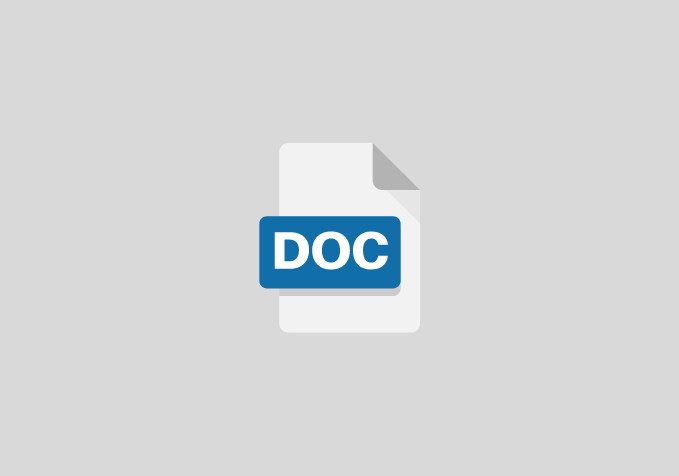A Proposal on Staff Development Programme and Teacher’s Effectiveness in Secondary Schools in Uyo
Chapter One
Objective of the study
The following research objectives will be ascertained;
- To investigate the impact of in-service training programmes on student’sacademic performance
- To examine effect of full-time and part-time training programmes onteachers’ teaching methods in the classrooms
- To examine the impact of in-service training programmes on teachers’ teaching methods in the classrooms
Chapter Two
Related literature
Introduction to Staff Development Programmes (SDP)
Staff development programme has been seen as all activities and courses aimed at extending the professional knowledge and skill of a serving teacher (or inspector or supervisor or head teacher, etc). After acquiring the necessary know-how, a teacher needs to improve on his standard from time to time so as to prevent the quality of his teaching from diminishing and to improve it. He has to update and upgrade his knowledge so that such knowledge may not become out-modelled and stale.
Staff development has been emphasized through the participation of members of staff that is teachers of secondary schools in the process of curriculum change. Effective curriculum design has to be set not only in the context of the needs of students and other stakeholders such as their future employers but also in terms of what is deliverable from an academic staff point of view. Teachers are themselves major stakeholders in secondary school education, and of course, any successful change must always involve both their willing cooperation and investment in staff development programme activities.
It has also been suggested by some crop of scholars that the education of the teachers should be made continuous, obligatory and undertaken at different periods. Thus, well-designed staff development programmes could help to revitalize the practicing teacher, hence the need for continuing education of the practicing teacher.
Staff development programme is wider than just a situation in which after the appointment of a teacher the task of the development of such a teacher has to be shifted to the head and senior teacher who will enable the person concerned developed in ways by which he or she will be enhanced to undertake a new role, building on from previous experience and using appraisal as a means of identifying emerging needs. Thus, a school needs to have a staff development plan to enable teachers meet the demands of the school development plan which will include the many demands coming from the National Curriculum and other national initiatives. School managements of different secondary schools in Nigeria need to be ready to help their teachers articulate their voice as a way of constructing and reconstructing the purposes and priorities in their work, both individually and collectively through staff development programmes.
For years, people have tried to solve the challenge of secondary schools that are performing woefully. Some of them believed that if educators are given a magical description, students would learn successfully. They viewed the current problems in schools as technical problems in other words, give teachers knowledge and skills and schools would get better.
However, for there to be qualitative education in Nigeria where the system of education is very poor, public and private secondary schools springing up who tend to be having many unqualified and in-experienced teachers in their employment need to train and re-train their teachers in order for them to become useful to their schools and also for a positive student academic performance.
CHAPTER THREE
RESEARCH DESIGN AND METHODOLOGY
The researcher used descriptive research survey design in building up this project work. The choice of this research design was considered appropriate because of its advantages of identifying attributes of a large population from a group of individuals. The design was suitable for the study as the study sought to staff development programme and teacher effectiveness in secondary schools in Uyo
CHAPTER FOUR
METHOD OF DATA ANALYSIS
The researcher will employ oral and direct interview in administering this research questions. Responses from the respondents were needed unlike questionnaires, which is less rewarding due to late receipt and loss of responses from respondents. The method of data analysis that will be used by the researcher is the simple percentage. More so, percentage and degrees of the responses will also be used in the analysis. Here, the ratio of those whose responses were not in the affirmative will be found and conclusions will be drawn there upon. Representations of the level of responses will be made in tabular form. The Statistical Package for Social Sciences (SPSS) software will be used to test the hypotheses.
References
- Adedeji, M.A. (2002). An analysis of human resources development programmes in two selected Nigerian university libraries (Unpublished MLS Thesis). University of Ibadan.
- Adebimpe, O.A. (2001). The place of library in the accomplishment of Universal Basic Education Programme. Journal of Educational Development, 82.
- Adeyemi, T.O. (2009). Enrolment analysis and teachers requirements for the Universal Basic Education Programme in Kwara State, Nigeria. Current Research Journal of Economic Theory, 1(1), 15-22.
- Aghenta, J.A. (1992). Operational objectives, achievements and shortcomings in the Implementation of Policies in teacher education in Nigeria. In A. Ndu (Ed.), Educational Policy and Implementation in Nigeria, Awka: The Nigeria Association For Educational Administration and Planning: 188-198.


